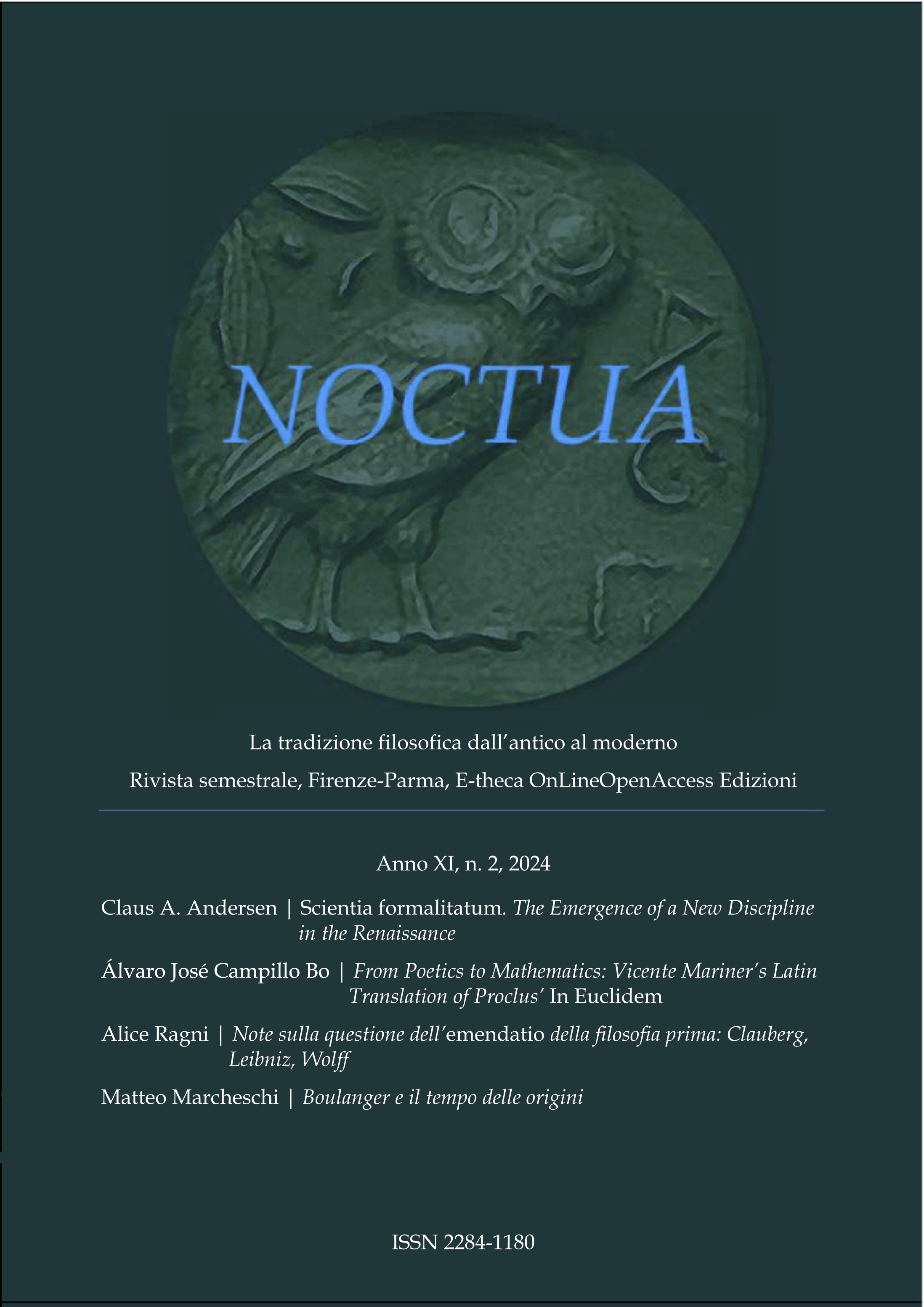Boulanger e il tempo delle origini
DOI:
https://doi.org/10.14640/NoctuaXI8Parole chiave:
origin, history, catastrophe, Nicolas-Antoine Boulanger, Jean-Jacques Rousseau, temporalityAbstract
In mid-eighteenth-century France, a series of debates revolved around reflections on origins and their epistemological status, elaborating models of historical temporality to frame the present. The origins of the arts, sciences, human inequality, human knowledge, fables or religions reveal a certain relationship between man (individuals and civilisations) and time, articulating forms of past permanence and future anticipation in the present. Within this framework, this article seeks to shed light on the peculiar temporal status of Nicolas-Antoine Boulanger’s reflection on origins. In a close comparison with Rousseau’s ‘atrabilious philosophy’ (philosophie atrabilaire), Boulanger identifies catastrophe as a temporal model for conceptualising the origin of a human history that has always already begun: origin appears not as that which stands at the beginning of time, but rather as a historical form of the relationship between humanity and time – an emotional and cognitive tone – that constitutes the background and precondition of human action.
##submission.downloads##
Pubblicato
Fascicolo
Sezione
Licenza
Noctua pubblica contributi Diamond Open Access secondo i termini della licenza CC BY / Noctua publishes Diamond Open Access contributions under the terms of the CC BY license.







